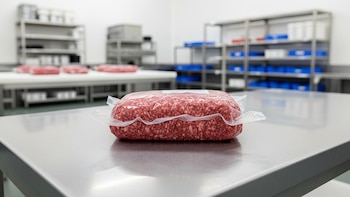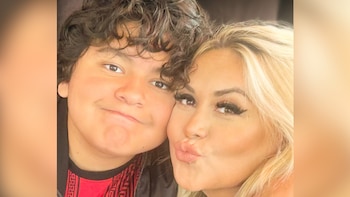
The panorama of press freedom in Latin America has only worsened, with a “sharpening of the repression” of independent journalism and “violence” against journalists, Efe Ricardo Trotti, executive director of the Inter-American Press Association (IAPA), warned this Saturday, which will hold its biannual meeting from Tuesday to Thursday.
In the last six months, the situation of press freedom in the region has “only worsened”, with a series of dominant features in recent years such as “violence against the media and the killing and imprisonment of journalists,” Trotti denounced.
In these first three months of the year, 13 journalists have been killed in Latin America, 8 of them in Mexico, an alarming figure that reveals the “weakness” of the protection and security systems for these professionals, an issue that will be addressed at the Midyear Meeting, which will be in virtual format.
Trotti, former editor-in-chief of the Argentine newspaper El Liberal, acknowledged feeling “frustration and helplessness” as he witnessed how rapid setbacks in the area of freedom of the press and expression ruin the costly progress made.

Escalation of repression and violence against journalists
He particularly highlighted the “sharpening of repression against journalism, whether through convictions, imprisonment or physical violence” in the region, particularly in Nicaragua, in addition to Venezuela and Cuba.
He noted that the most recent country-by-country reports to be presented at the IAPA meeting reflect that “we are not talking about mere slaps against press freedom, but about systematic attacks.”
Thus, in Nicaragua, the country that will be the focus of the meeting, three journalists from the newspaper La Prensa are imprisoned with sentences of up to 13 years in prison and the newspaper “is still occupied by the police,” he said.
During the meeting, the testimonies of the families of journalists imprisoned and persecuted by Daniel Ortega's regime will be heard, and a declaration will be adopted with “several points of action to respond to attacks on journalism and human rights” in the Central American country, the IAPA said.

Trotti referred, in this context, to the “continuous stigmatization of media and journalists” that is observed in countries such as El Salvador or Mexico, and the “growing laws that prejudice the free flow of information in journalists' coverage.”
Thus, recently, the Legislative Assembly of El Salvador, with an official majority, approved a series of reforms to the Penal Code and the Law on the Prohibition of Gangs, which, in fact, “practically prohibits the media from publishing on issues of street or gang violence.”
Much of the reports to be read at the IAPA meeting abound on the “serious problem of access to public information” and, in parallel, “the lack of transparency” of States to “inform or provide access to information to journalists” on matters relating to corruption or public health (the coronavirus).
Mexico, the most dangerous country to practice journalism
As for Mexico, Trotti did not hesitate to ensure that it is the “most dangerous” country in the region today to practice journalism, with “a high rate of impunity” for crimes and a system of protection for journalists that “is not working properly”, because “there is no justice or protection”.
He recalled that the IAPA has repeatedly “recriminated” Mexican President Andrés Manuel López Obrador for his rhetoric of stigmatizing the media and journalists.

A type of stigmatizing speech (by López Obrador) against the press that “contributes to more violence against journalists in the country,” he said.
This is a type of verbal attacks on the media that is also used by the president of El Salvador, Nayib Bukele, and that of Brazil, Jair Bolsonaro, he added.
Another important issue to be addressed at the meeting will be that of the high prison sentences in Cuba due to the popular protests of 2021.
On the 20th, the sustainability of the media will be debated, “the crisis caused by changes in the business model and the internet”.
Among the participants scheduled for this biannual meeting are the special rapporteur on freedom of expression of the Inter-American Commission on Human Rights (IACHR), Pedro Vaca, UNESCO representative Guilherme Canela and Canadian Heritage Minister Pablo Rodríguez.
Rodriguez will talk about the proposed law for companies like Google or Facebook to pay the media in Canada for the use of their content on their digital platforms.
(With information from EFE)
KEEP READING:
Últimas Noticias
Debanhi Escobar: they secured the motel where she was found lifeless in a cistern
Members of the Specialized Prosecutor's Office in Nuevo León secured the Nueva Castilla Motel as part of the investigations into the case

The oldest person in the world died at the age of 119
Kane Tanaka lived in Japan. She was born six months earlier than George Orwell, the same year that the Wright brothers first flew, and Marie Curie became the first woman to win a Nobel Prize

Macabre find in CDMX: they left a body bagged and tied in a taxi
The body was left in the back seats of the car. It was covered with black bags and tied with industrial tape
The eagles of America will face Manchester City in a duel of legends. Here are the details
The top Mexican football champion will play a match with Pep Guardiola's squad in the Lone Star Cup

Why is it good to bring dogs out to know the world when they are puppies
A so-called protection against the spread of diseases threatens the integral development of dogs




